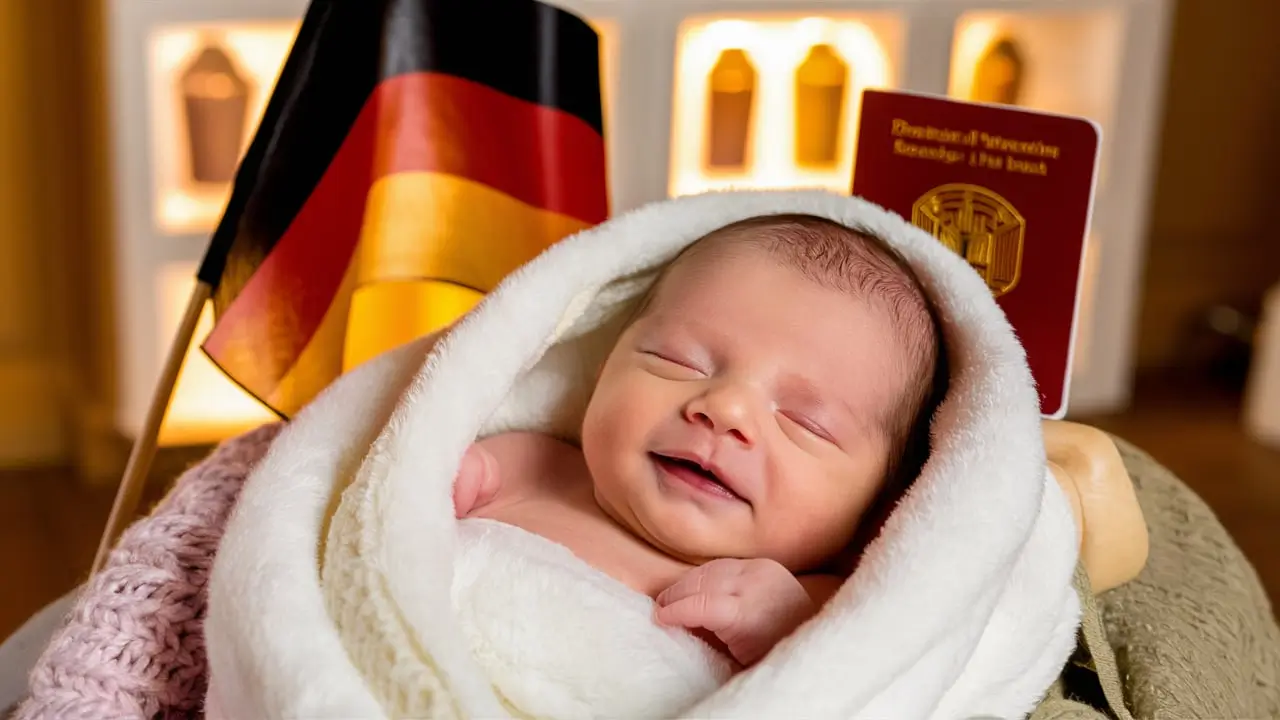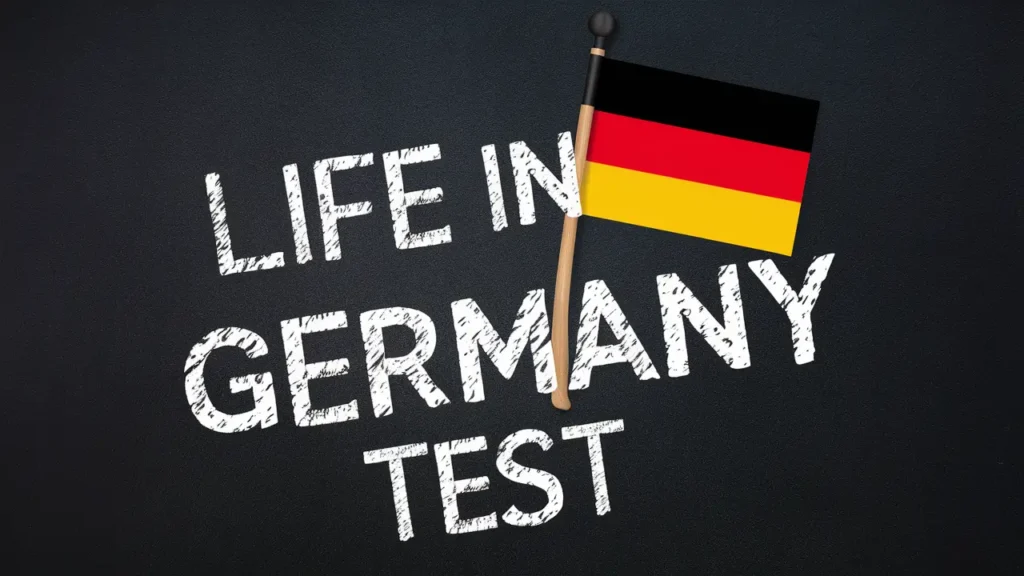What is Newborn Citizenship in Germany? Does a baby born in Germany automatically receives citizenship? Germany’s approach to citizenship has evolved significantly in recent years. Let’s explore the nuances of this topic and understand the implications of the new German citizenship law.
- The Birth of a New Era in German Citizenship
- Jus Soli: The Right of Soil
- Parental Status: A Key Factor
- The Eight-Year Rule
- Permanent Residence Permit: Another Path
- Dual Citizenship: A New Perspective
- The Application Process
- Required Documents
- Decision Timeline for Newborn Citizenship in Germany
- Integration Requirements
- Benefits of German Citizenship
- Potential Challenges
- The European Context
- Looking Ahead: Future Policy Changes
- Global Mobility Considerations
- The Role of Local Communities
- Language and Cultural Programs
- Economic Implications
- A Path to European Citizenship
- Embracing Diversity
- Navigating Bureaucracy
- Celebrating New Citizens
The Birth of a New Era in German Citizenship
When a child enters the world on German soil, parents often wonder about their offspring’s legal status. The rules governing citizenship for a baby born in Germany have changed recently. These changes aim to modernize Germany’s approach to nationality and integration.
Jus Soli: The Right of Soil
The concept of “jus soli” plays a crucial role in determining citizenship for infants born within German borders. This principle grants nationality based on the place of birth. However, Germany doesn’t apply jus soli unconditionally.
Parental Status: A Key Factor
For a baby born in Germany to receive citizenship, certain conditions must be met. The nationality and residency status of the parents significantly influence the child’s eligibility for German citizenship.
The Eight-Year Rule
Under the new German citizenship law, a baby born in Germany may automatically receive citizenship if at least one parent has legally resided in Germany for eight years or more. This provision aims to recognize long-term residents and their children.
Permanent Residence Permit: Another Path
In some cases, a baby born in Germany might be eligible for citizenship if a parent holds a permanent residence permit. This option acknowledges the commitment of individuals who have established long-term ties to Germany.
Dual Citizenship: A New Perspective
The new German citizenship law brings significant changes regarding dual citizenship. Previously, children often had to choose between nationalities upon reaching adulthood. Now, a baby born in Germany may retain multiple citizenships throughout their life.
The Application Process
For parents of a baby born in Germany, navigating the citizenship application process can seem daunting. However, German authorities have streamlined the procedure to make it more accessible.
Required Documents
When applying for citizenship for a baby born in Germany, parents typically need to provide:
- The child’s birth certificate
- Parents’ passports or ID cards
- Proof of parental residency in Germany
- Marriage certificate (if applicable)
Decision Timeline for Newborn Citizenship in Germany
The processing time for citizenship applications can vary. However, for a baby born in Germany, authorities often prioritize these cases. Parents can typically expect a decision within a few months.
Integration Requirements
While integration requirements don’t directly apply to infants, parents should be aware of future obligations. As the child grows, demonstrating German language proficiency and cultural integration may become necessary.
Benefits of German Citizenship
Obtaining German citizenship for a baby born in Germany offers numerous advantages:
- Freedom of movement within the EU
- Access to the German education system
- Future employment opportunities
- Consular protection abroad
Potential Challenges
Despite the benefits, some families may face challenges when seeking citizenship for their German-born infant. These might include:
- Complex documentation requirements
- Lengthy processing times
- Potential conflicts with other nationalities
The European Context
Germany’s approach to citizenship for babies born within its borders aligns with broader European trends. Many EU countries have adopted similar policies to address demographic changes and promote integration.
Looking Ahead: Future Policy Changes
As society evolves, so too may the laws governing citizenship for babies born in Germany. Policymakers continue to debate and refine these regulations to balance national interests with individual rights.
Global Mobility Considerations
In an increasingly interconnected world, the citizenship status of a baby born in Germany can have far-reaching implications. It may affect future opportunities for education, work, and travel on a global scale.
The Role of Local Communities
Local communities play a vital part in welcoming and integrating families with babies born in Germany. Many cities offer support services and information to help navigate the citizenship process.
Language and Cultural Programs
While not immediately relevant for infants, parents should be aware of language and cultural programs available in Germany. These can help ensure that as their child grows, they develop strong ties to German society.
Economic Implications
The citizenship status of a baby born in Germany can have long-term economic effects. It may influence access to social services, education funding, and future employment prospects within the country and the EU.
A Path to European Citizenship
By obtaining German citizenship, a baby born in Germany also gains EU citizenship. This opens up opportunities across the European Union, from study abroad programs to career options in various member states.
Embracing Diversity
Germany’s evolving citizenship laws reflect a broader commitment to embracing diversity. By providing pathways to citizenship for babies born in Germany, the country fosters a more inclusive and multicultural society.
Navigating Bureaucracy
While the process has been simplified, parents may still find the bureaucracy challenging. Seeking assistance from legal professionals or community organizations can help simplify the citizenship journey for a baby born in Germany.
Celebrating New Citizens
Many German cities hold ceremonies to welcome new citizens, including those who gained citizenship by birth. These events celebrate the diverse backgrounds that contribute to Germany’s rich cultural tapestry.
In conclusion, an infant born in Germany is subject to a number of factors that influence their citizenship. The German citizenship law that was just passed has led to increased inclusion. However, each scenario is unique and requires careful consideration. Just as Germany changes, so too will the way it greets its newest residents.




